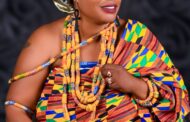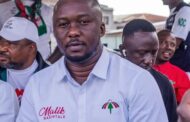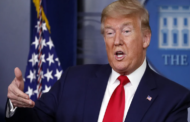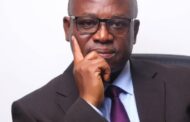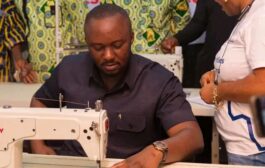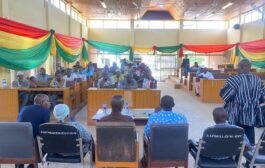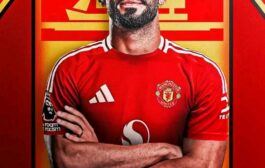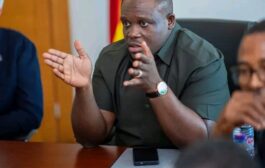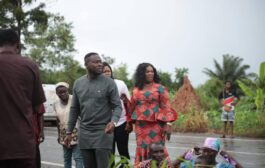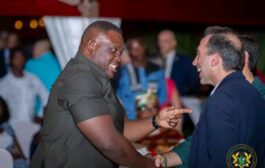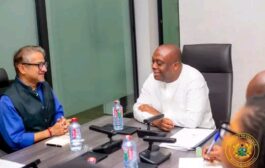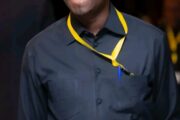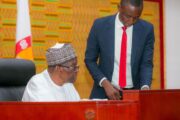In February 1966, OUR Kwame Nkrumah was toppled in a military coup. In an operation to wipe out his memory, the military regime targeted even the first borborbor band, seized its drums and arrested the founder of that music, Francis Nuatro of Kpando. Nkrumah had adopted the Kpando Borborbor Band and renamed it Nkrumah’s Own Borborbor Band.
Nkrumah’s statue also fell, its head decapitated in the manner he was severed from the nation he toiled to build.
Some Ghanaians rejoiced over the fall of Nkrumah. As captured by the Daily Graphic, Nii Okai Pesemaku III of the Gbese Traditional Area sent a congratulatory message to the coup makers in which he described the fall of Nkrumah as “more spectacular than the fall of Satan.”
Nearly six decades later, posterity–the acclaimed judge of human endeavours–continues to pass favourable verdicts on Nkrumah’s life and deeds.
Voted Africa’s Man of the Millennium ahead of Mandela and having his statue at the Headquarters of the African Union are among other international recognitions of Nkrumah, a man with many streets and monuments named after him in countries across the world.
Back home, Nkrumah’s image is like akpeteshie. It doesn’t need any advertisement to promote its patronage. And it’s not for nothing that “Nkrumah never dies.”
In a country where newly constructed roads don’t outlast one rainy season, the Tema motorway Nkrumah built to link his well-planned industrial city of Tema to Accra is sixty years old this year. The Akosombo Dam has remained our major source of electricity since independence. Nkrumah left a lasting impression in every sector of the economy and was on a mission to help build an Africa that would have a say in the world.
Nkrumah was not a saint. The alcoholic content of power got into his head, and he had little patience for those who opposed him. Some critics fault his policies and ideology.
But he was an honest man who dedicated his life to building his country.He was selflessness personified. He had no appetite for our money. With his absolute power, he did not transfer our national wealth to his family as inheritance (agyapadie). He did not steal our lands or leave chains of homes for his family. (His children say they did not inherit a single house or parcel of land from him.) Of all the propaganda against him, we have not heard that he stashed millions in foreign bank accounts.
So, today, if the statue of Akufo-Addo has been toppled and people are comparing it to the fall of Nkrumah’s statue to seek solace in the vindication of posterity, it is important to point this out. Two people may suffer the same or similar fates, but those fates alone do not define their places in history.
Jesus was crucified on the cross with two thieves. The circumstances of their death were similar. After 2000 years, when the story is told, Jesus is still described as the Saviour of the world, but the two men are still nameless thieves.
Source:Mybrytfmonline.com/Manasseh Azure








